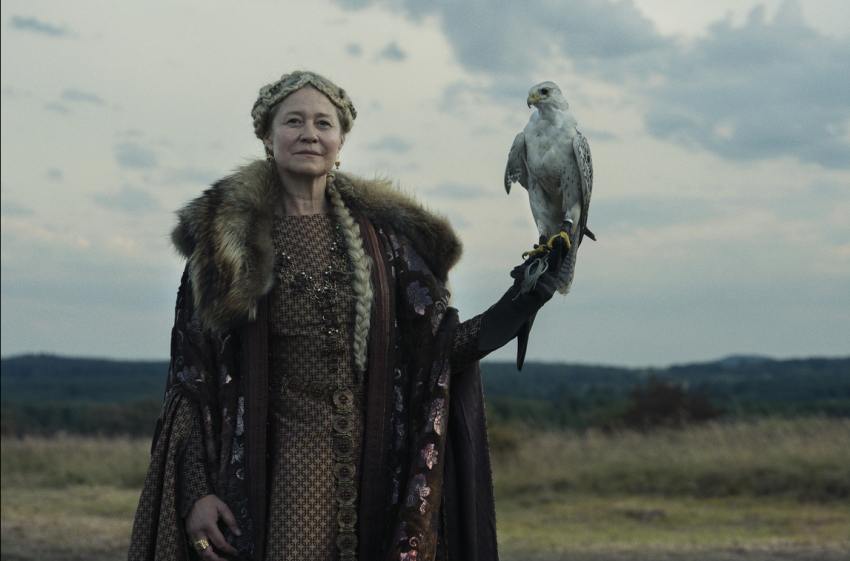
Margrete: Queen of the North (Margrete den Første)
Directed by Charlotte Sieling
Written by Jesper Fink, Maya Ilsøe, Charlotte Sieling
Starring Trine Dyrholm, Søren Malling, Jakob Oftebro, Morten Hee Andersen
In Danish, Swedish, Norwegian, English, German and French with sub-titles
In cinemas
Queen Margrete of Denmark is one of the great women of history. She came to power as Danish regent in 1375, at her father’s death, ruling on behalf of her son, Olaf.
After her husband, the King of Norway, died, she came to control of the kingdoms of Sweden and Norway in addition to Denmark, in what is known as the Kalmar Union. She demonstrated deft statecraft as well as strategic use of pirates to advance her plans.
After the death of her son in 1388 she became Queen in her own right. However, with no heir of her own, she adopted one of her nephews as her successor, naming him King Erik.
Something she was well-known for, which is alluded to in the film is her defence of women from rape. Any woman who was violated by her army could receive compensation from her.
This atmospheric film fictionalises a true event that occurred in 1402: a stranger appeared claiming to be her long-dead son, Olaf.
As shown in Margrete: Queen of the North this precipitates a complex series of manoeuvres at court with nobles of various realms scheming and plotting, putting at risk the precarious unity that Margrete so carefully constructed.
With a lessor cast and less skilled direction this would simply be a crass reworking of Game of Thrones. What raises this film above cliché is the strength of characterisation of each part and the careful pacing of the unfolding drama.
Margrete (Trine Dyrholm), while determined, is no one-dimensional tyrant. The aspect of her motherhood is gently portrayed alongside the contending pressures she experiences.
Her closest advisor, Archbishop Peder (a great performance by Søren Malling) is genuinely affectionate and protective of her. But where are his allegiances as the harmony of the Kalmar Union is disrupted?
Similarly, the numerous contending aristocrats are multi-faceted. Erik (Morten Hee Andersen), facing oblivion if the pretender is accepted as the true king, portrays dangerous levels of gullibility and rashness combined with an immature desire to move out of Margrete’s shadow.
In the second volume of his Marxist novel The Aesthetics of Resistance, Peter Weiss explains in depth the importance of this period of Scandinavian history and its aftermath. Margrete ably steered the unified kingdoms until her death, but Erik proved to be less capable, with chaos ensuing.
In the period of turmoil, the Swedish iron ore miner and nobleman, Engelbrekt Engelbrektsson, led peasants and merchants in a rebellion. Weiss explains that this was the seedbed of Swedish national identity and democratic culture.
Thus, Margrete: Queen of the North depicts an episode in the era of high feudalism before the slow rise of bourgeois consciousness.
Given its classy production values, consummate acting and tasteful direction, this is a very humane couple of hours of cinema.
Watch the trailer here.